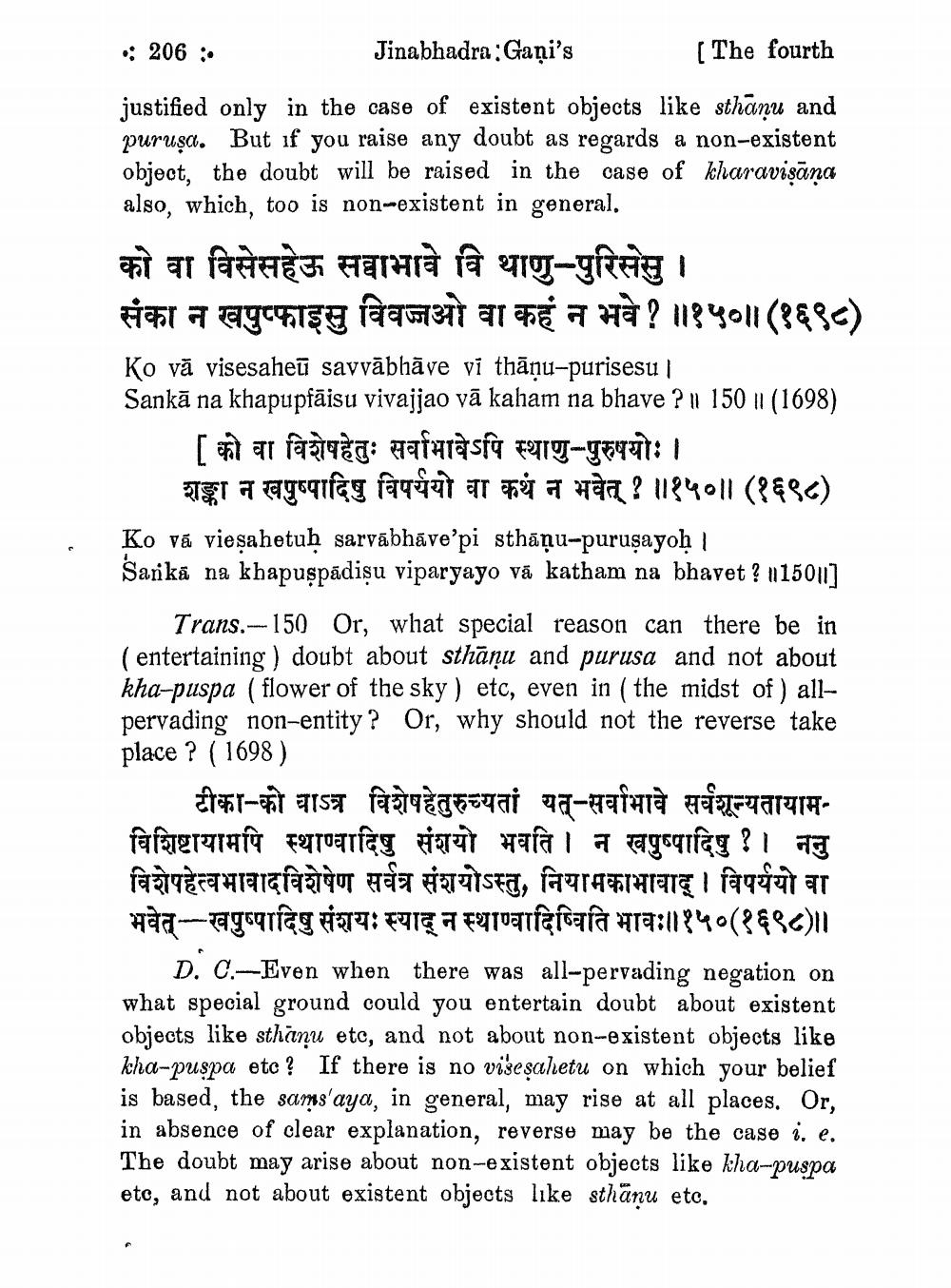________________
.: 206 :
Jinabhadra :Gani's [The fourth justified only in the case of existent objects like sthanu and puruşa. But if you raise any doubt as regards a non-existent object, the doubt will be raised in the case of kharavişāna also, which, too is non-existent in general. को वा विसेसहेऊ सवाभावे वि थाणु-पुरिसेसु । संका न खपुप्फाइसु विवजओ वा कहं न भवे? ॥१५०॥ (१६९८) Ko vā visesaheū savvābhāve vi thāņu-purisesu | Sankā na khapupfaisu vivajjao vā kaham na bhave ? ॥ 150 ॥ (1698)
[को वा विशेषहेतुः सर्वाभावेऽपि स्थाणु-पुरुषयोः ।
शङ्का न खपुष्पादिषु विपर्ययो वा कथं न भवेत् ? ॥१५०॥ (१६९८) Ko Va viesahetuh sarvabhave'pi sthānu-purusayoh | Sarika na khapușpădişu viparyayo vā katham na bhavet? 11150117
Trans.--150 Or, what special reason can there be in ( entertaining ) doubt about sthāņu and purusa and not about kha-puspa ( flower of the sky ) etc, even in ( the midst of ) allpervading non-entity? Or, why should not the reverse take place ? ( 1698)
टीका-को चाऽत्र विशेषहेतुरुच्यतां यत्-सर्वाभावे सर्वशून्यतायामविशिष्टायामपि स्थाण्वादिषु संशयो भवति । न खपुष्पादिषु ?। ननु विशेषहेत्वभावादविशेषेण सर्वत्र संशयोऽस्तु, नियामकाभावाद् । विपर्ययो वा भवेत्-खपुष्पादिषु संशयः स्याद् न स्थाण्वादिष्विति भावः॥१५०(१६९८)।
D. C.-Even when there was all-pervading negation on what special ground could you entertain doubt about existent objects like sthanu etc, and not about non-existent objects like kha-puspa etc ? If there is no višeşahetu on which your belief is based, the sams'aya, in general, may rise at all places. Or, in absence of clear explanation, reverse may be the case i. e. The doubt may arise about non-existent objects like kha-puspa etc, and not about existent objects like sthānu etc.




